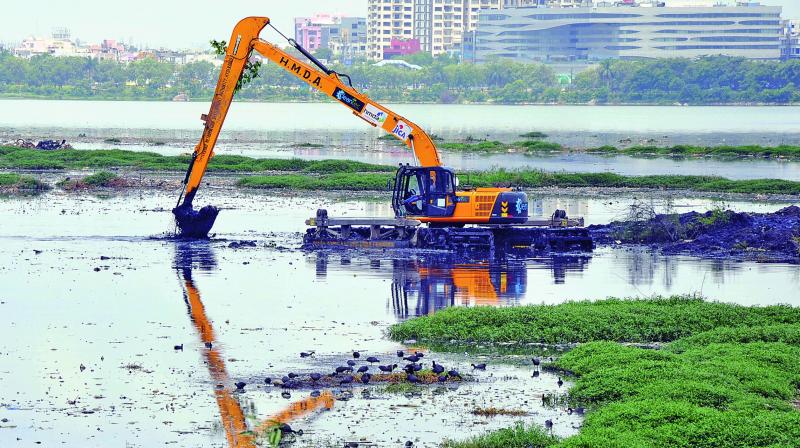High Court's powers under Art 226 not absolute
Law makers empowered the NGT so that substantial environmental issues posing grave public hazards could be decided in six months.

Hyderabad: Though Section 22 of the National Green Tribunal Act 2010, makes it clear that the Supreme Court only has jurisdiction to deal with appeals challenging the orders of the National Green Tribunal (NGT), in recent times several High Courts across the country have opined that the jurisdiction of the High Court under Article 226 and 227 of the Constitution cannot be expelled under this Act.
The issue of the High Court having jurisdiction over the NGT’s orders was widely discussed in several cases in the Telangana High Court also.
One of the cases is that of de-watering and cleaning up of the Hussain Sagar Lake. In 2015, the state government had taken a decision to de-water and clean the lake with the help of Vienna-based Austrian Institute of Technology.
Save Our Urban Lakes (SOUL), a city based NGO, had approached the NGT Bench at Chennai, urging it to stay the move of the government as de-watering of the lake would have a very bad effect on public health.
SOUL had contended that polluted water of the Hussain Sagar Lake goes into all other linked lakes and also the Musi and Krishna Rivers. It had represented before the Tribunal, the use of polluted Musi water for agriculture and fish farming and also its effect on groundwater.
While considering the contentions of the NGO, the NGT bench stayed the decision of the Telangana state government, on May 1, 2015.
The state government approached the Hyderabad High Court stating that it had already spent about Rs 280 crore of the total Rs 360 crore sanctioned by Japan International Cooperation Agency (JICA) for cleaning up the lake. A division bench on May 7, 2015 then stayed the order of the NGT bench.
SOUL then moved the Supreme Court, contending that the High Court has no jurisdiction to entertain an appeal on NGT orders.
While remanding the matter to the High Court, the apex court directed the NGT to set up an expert committee to verify whether the work undertaken by the state government was limited to the repairs of the sluices and that there was no unnecessary de-watering. It also granted the NGT the authority to order such a team to give its report expeditiously. The apex court refrained from issuing any directive to the state on the de-watering issue.
There were several other cases like deforestation in the forest conservation zone while constructing infrastructure for the Kaleshwaram irrigation project and the Palamuru –Ranga Reddy Lift Irrigation Scheme, that were challenged before NGT benches.
The respective benches of the Tribunals directed the state government to stop the work. After that, the state government approached the Hyderabad High Court. The High Court has entertained the appeals on technical grounds, without reference to the jurisdiction issue.
Advocate B Rachana Reddy says that the National Green Tribunal “shall hear only ‘substantial question relating to the environment’, which has an effect on the community at large, or causes significant damage to the environment and property, or causes harm to public health which is broadly measurable This specific act cannot be over ruled by High Courts under the guise of Article 226.”
She explains that the NGT has the power to impose up to three years imprisonment and/ or fine of Rs 10 crore for individuals and Rs 25 crore for companies for not implementing its orders.
“With more environmental laws violations in the country’s lawmakers, with the intention to deal with these cases, expeditiously gave powers to the NGT and mandated that the Tribunal dispose of applications and petitions within a period of six months,” Ms Reddy said.
However, with many other reasons like non-filling up of posts in the Tribunal, cases get delayed.

